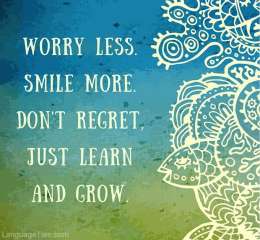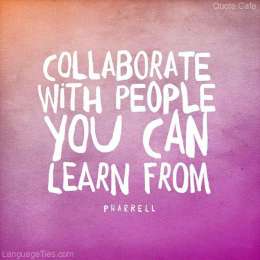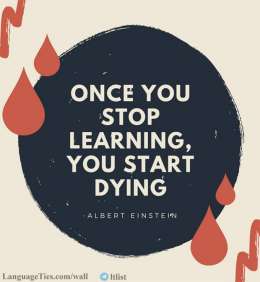recognize
to know someone or something because you have seen, heard, or experienced them before
I hadn't seen her for 20 years, but I recognized her immediately.
Oxford Essential Dictionary
recognize
verb (recognizes, recognizing, recognized )
1 to know again somebody or something that you have seen or heard before:
I didn't recognize you without your glasses.
2 to know that something is true:
They recognize that there is a problem.
Longman Dictionary of Contemporary English
recognize
rec‧og‧nize S1 W1 BrE AmE (also recognise British English) /ˈrekəɡnaɪz, ˈrekən-/ verb [transitive]
[Word Family: verb: ↑recognize; noun: ↑recognition; adverb: ↑recognizably; adjective: ↑recognizable ≠ ↑unrecognizable]
[Date: 1400-1500; Language: Old French; Origin: reconoistre, from Latin recognoscere, from cognoscere 'to know']
1. [not in progressive] to know who someone is or what something is, because you have seen, heard, experienced, or learned about them in the past:
I didn’t recognize you in your uniform.
It was malaria, but Dr Lee hadn’t recognized the symptoms.
REGISTER
In everyday English, people often say that they know (that) it is someone or something rather than say they recognize them:
▪ I knew it was her by the hat she was wearing.
2. to officially accept that an organization, government, document etc has legal or official authority:
British medical qualifications are recognized in Canada.
recognize something as something
The World Health Organization has recognized alcoholism as a disease since 1951.
3. to accept or admit that something is true
recognize (that)
One must recognise that homesickness is natural.
recognize what/how/who etc
It is important to recognize how little we know about this disease.
4. [usually in passive] if something is recognized by people, they realize that it is important or very good:
Alexander tried to get his work recognized by the medical profession.
be recognized as something
Lawrence’s novel was eventually recognized as a work of genius.
a recognized authority on Roman pottery
5. to officially and publicly thank someone for something they have done, by giving them a special honour:
He was recognized for having saved many lives.
—recognizable /ˈrekəɡnaɪzəbəl, -kən- ˌrekəɡˈnaɪ-/ adjective:
His face was instantly recognizable.
—recognizably adverb
• • •
THESAURUS
▪ recognize to know who someone is or what something is, especially because you have seen or heard them before: I hadn’t seen her for ten years, but I recognized her immediately. | Do you recognize this song?
▪ identify to recognize someone or something and say who or what they are: As they came closer, I was able to identify two of the group. | It’s delicious but I can’t quite identify the taste.
▪ distinguish to recognize and understand the difference between two or more things or people: By this age, kids can usually distinguish between right and wrong. | It’s often difficult to distinguish identical twins from each other.
▪ make something/somebody out to be able to see or hear something or someone – used when it is very difficult to do this: In the distance, I could just make out the outline of an island. | He whispered something but I couldn’t make out what it was.
▪ discern /dɪˈsɜːn $ -ɜːrn/ formal to notice or understand something by looking carefully or thinking about it carefully: I thought I discerned a faint gleam of hope in his eyes. | A number of differences can be discerned in the data for the three countries.
▪ know to recognize someone or something. Know is often used in everyday English instead of recognize: How do you know that it is real gold? | I know him from somewhere. | I can’t remember his name, but I know his face.
▪ can tell to be able to recognize someone or something: I could tell that it was him by his voice. | Can you tell that it’s not real leather? | It’s difficult to be able to tell them apart (=to recognize that they are different).
Oxford Advanced Learner's Dictionary
recognize
rec·og·nize (BrE also -ise) [recognize recognizes recognized recognizing] [ˈrekəɡnaɪz] [ˈrekəɡnaɪz] verb
(not used in the progressive tenses)
1. to know who sb is or what sth is when you see or hear them, because you have seen or heard them or it before
• ~ sb/sth I recognized him as soon as he came in the room.
• Do you recognize this tune?
• ~ sb/sth by/from sth I recognized her by her red hair.
2. to admit or to be aware that sth exists or is true
Syn: acknowledge
• ~ sth They recognized the need to take the problem seriously.
• ~ sth as sth Drugs were not recognized as a problem then.
• ~ how, what, etc… Nobody recognized how urgent the situation was.
• ~ that… We recognized that the task was not straightforward.
• it is recognized that… It was recognized that this solution could only be temporary.
• ~ sb/sth to be/have sth Drugs were not recognized to be a problem then.
3. to accept and approve of sb/sth officially
• ~ sb/sth (as sth) recognized qualifications
• The UK has refused to recognize the new regime.
• be recognized to be/have sth He is recognized to be their natural leader.
4. be recognized (as sth) to be thought of as very good or important by people in general
• The book is now recognized as a classic.
• She's a recognized authority on the subject.
5. ~ sb/sth to give sb official thanks for sth that they have done or achieved
• His services to the state were recognized with the award of a knighthood.
See also: -ise
Verb forms:
Word Origin:
late Middle English (earliest attested as a term in Scots law): from Old French reconniss-, stem of reconnaistre, from Latin recognoscere ‘know again, recall to mind’, from re- ‘again’ + cognoscere ‘learn’.
Thesaurus:
recognize (BrE also -ise) verb
1. T (not used in the progressive tenses)
• I recognized him by the way he walked.
know • • identify • • place • • pick sb/sth out • • make sb/sth out • |formal discern •
recognize/know/identify sb/sth by sth
recognize/identify sb/sth as sb/sth
recognize/know/identify/make out/discern who/what/how…
Recognize or know? Know is used especially to talk about sounds, or when sb recognizes the quality or opportunity that sb/sth represents, as in the phrase sb knows a…when they see one:
• I know that voice/laugh/tune!
• He knows a lady when he sees one.
Recognize can also be used in this way but sounds slightly more formal. Know is not usually used to talk about people:
• I recognized him as soon as he came in.
¤ I knew him as soon as he came in.
2. T (not used in the progressive tenses)
• The directors recognize that there is a serious problem.
admit • • acknowledge • • grant • • concede • • confess •
recognize/admit/acknowledge/grant/concede/confess that…
It is/was (generally) recognized/admitted/acknowledged/granted/conceded that…
you must recognize/admit/acknowledge/grant/concede/confess sth
3. T (not used in the progressive tenses)
• These qualifications are internationally recognized.
approve • • confirm • • ratify • • certify • |formal validate •
recognize/approve/confirm/ratify/certify/validate sth as sth
recognize/approve/validate a course
officially recognize/approve/confirm/ratify sth
Example Bank:
• All rivers should be officially recognized as public rights of way.
• Criminal law implicitly recognizes a difference between animals and property.
• Do any US states currently recognize gay marriage?
• He readily recognizes the influence of Freud on his thinking.
• He recognized the man as one of the police officers.
• I immediately recognized the building.
• I recognized them from a television show.
• I vaguely recognized his voice, but couldn't think of his name.
• It's important to recognize that obesity isn't necessarily caused by overeating.
• She recognized the song correctly.
• Stella hardly recognized her brother.
• The 1970s are rightly recognized as a golden era of Hollywood film-making.
• The Medway estuary is recognized internationally as a conservation area.
• The company had been slow to recognize the opportunities available to it.
• The company should publicly recognize its mistake.
• The court explicitly recognized the group's right to exist.
• The estuary is recognized internationally as an important area for wildlife.
• The government has belatedly recognized the danger to health of passive smoking.
• The law clearly recognizes that a company is separate from those who invest in it.
• The strength of this argument is being increasingly recognized.
• They fully recognize the need to proceed carefully.
• This is the only species of flamingo in the region, easily recognized by its pink plumage.
• This issue must be recognized as a priority for the next administration.
• You learn to recognize the calls of different birds.
• I recognized him by the way he walked.
• The qualifications are internationally recognized.
• We barely recognized her— she had changed so much in ten years.
Cambridge Advanced Learner's Dictionary
Cambridge Advanced Learner's Dictionary - 4th Edition
recognize ( UK usually recognise ) / ˈrek.əɡ.naɪz / verb [ T ] (KNOW)
B1 to know someone or something because you have seen, heard, or experienced them before:
I hadn't seen her for 20 years, but I recognized her immediately.
Do you recognize this song?
Doctors are trained to recognize the symptoms of different diseases.
recognize ( UK usually recognise ) / ˈrek.əɡ.naɪz / verb (ACCEPT)
B2 [ T ] to accept that something is legal, true, or important:
The international community has refused to recognize (= officially accept the existence of) the newly independent nation state.
[ + (that) ] He sadly recognized (that) he would die childless.
You must recognize the seriousness of the problems we are facing.
C1 [ T often passive ] If a person's achievements are recognized, official approval is shown for them:
The prime minister recognized her services to her country by awarding her an MBE.
© Cambridge University Press 2013
Collins COBUILD Advanced Learner’s English Dictionary
recognize
[re̱kəgnaɪz]
♦♦
recognizes, recognizing, recognized
(in BRIT, also use recognise)
1) VERB: no cont If you recognize someone or something, you know who that person is or what that thing is.
[V n] The receptionist recognized him at once...
[V n] He did not think she could recognize his car in the snow...
[V n as n] A man I easily recognized as Luke's father sat with a newspaper on his lap.
2) VERB: no cont If someone says that they recognize something, they acknowledge that it exists or that it is true.
[V n] I recognize my own shortcomings...
[V that] Well, of course I recognize that evil exists.
Syn:
accept
3) VERB If people or organizations recognize something as valid, they officially accept it or approve of it.
[V n as n] Most doctors appear to recognize homeopathy as a legitimate form of medicine...
[V n] France is on the point of recognizing the independence of the Baltic States.
[V-ed] ...a nationally recognized expert on psychology. [Also V that]
Syn:
accept
4) VERB When people recognize the work that someone has done, they show their appreciation of it, often by giving that person an award of some kind.
[V n as n] The RAF recognized him as an outstandingly able engineer...
[V n] He had the insight to recognize their talents...
[V n] Nichols was recognized by the Hall of Fame in 1949.
Merriam-Webster's Advanced Learner's Dictionary
recognize
rec·og·nize also Brit rec·og·nise /ˈrɛkɪgˌnaɪz/ verb -niz·es; -nized; -niz·ing [+ obj]
1 not used in progressive tenses : to know and remember (someone or something) because of previous knowledge or experience
• I didn't recognize you at first with your new haircut.
• I can always recognize him from far away by/from the way he walks.
• They recognized the odor at once.
2 : to accept or be aware that (something) is true or exists
• It's important to recognize [=be aware of] your own faults.
• They started talking and quickly recognized [=realized] how much they had in common.
3 : to accept and approve of (something) as having legal or official authority
• The U.S. government has now recognized the newly formed country.
• They refused to recognize the treaty.
4 : to think of (someone or something) as being something specified
• The institute is an internationally recognized authority on eye surgery.
• Walt Whitman is recognized as one of America's great poets.
5 : to publicly give special attention or notice to (someone or something)
• They recognized her years of service with a special award.
• We want to find an appropriate way to recognize his achievements.
- rec·og·niz·able also Brit rec·og·nis·able /ˈrɛkɪgˌnaɪzəbəl/ adj [more ~; most ~]
• She has one of the most recognizable faces in the movie industry.
• The bird is easily recognizable because of its bright red feathers.
- rec·og·niz·ably also Brit rec·og·nis·ably /ˈrɛkɪgˌnaɪzəbli/ adv
• recognizably different versions




